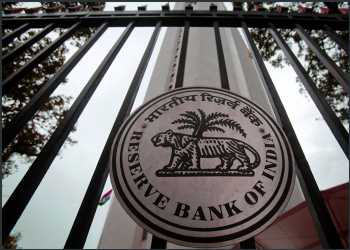India Central Bank Lifts Rates Again To Battle Inflation, Rupee Weakness
The Reserve Bank of India lifted its benchmark rate for the fourth straight session, in a bid to combat high inflation and the decline in the rupee to a record low as the emerging markets encounter spillover effects from the policy normalization in advanced economies.
The Monetary Policy Committee voted 5-1 to hike its key interest rate, the repo, by 50 basis points to 5.90 percent from 5.40 percent with immediate effect, Governor Shaktikanta Das said on Friday. One policymaker sought an increase of 35 basis points.
The repo rate has been raised by a cumulative 190 basis points since May.
The standing deposit facility rate was adjusted to 5.65 percent and both the marginal standing facility and the bank rate to 6.15 percent.
The MPC also decided by a majority of 5-1 to remain focused on withdrawal of accommodation to ensure that inflation remains within the target going forward, while supporting growth.
The governor said inflation is hovering around 7 percent and it is expected to remain elevated at around 6 percent in the second half of this year. Consumer price inflation is projected at 6.7 percent in the fiscal year 2022-23, unchanged from the previous forecast.
The outlook to inflation is fraught with considerable uncertainty, given the volatile geopolitical situation, global financial market volatility and supply disruptions, the RBI noted.
At the same time, the central bank downgraded its real GDP growth forecast for 2022-23 to 7.0 percent from 7.2 percent, citing headwinds from geopolitical tensions, tightening global conditions and the slowing external demand.
“The MPC is of the view that further calibrated monetary policy action is warranted to keep inflation expectations anchored, restrain the broadening of price pressures and pre-empt second round effects,” Das said.
Further rate hikes are likely over the coming months but, with inflation set to slow, the central bank is likely to revert to hikes of 25 basis point increments, Capital Economics economist Shilan Shah said.
The governor also announced that the 28-day variable rate reverse repo or VRRR will be merged with the fortnightly 14-day main auctions. Consequently, from now on, only 14-day VRRR auctions will be conducted.
“Fine-tuning operations of various maturities for absorption as well as injection of liquidity will continue as may be necessary from time to time,” Das added.
The governor said, “We will remain resolute and persevere in our efforts to ensure price stability as well as financial stability, while supporting growth.”
Source: Read Full Article

